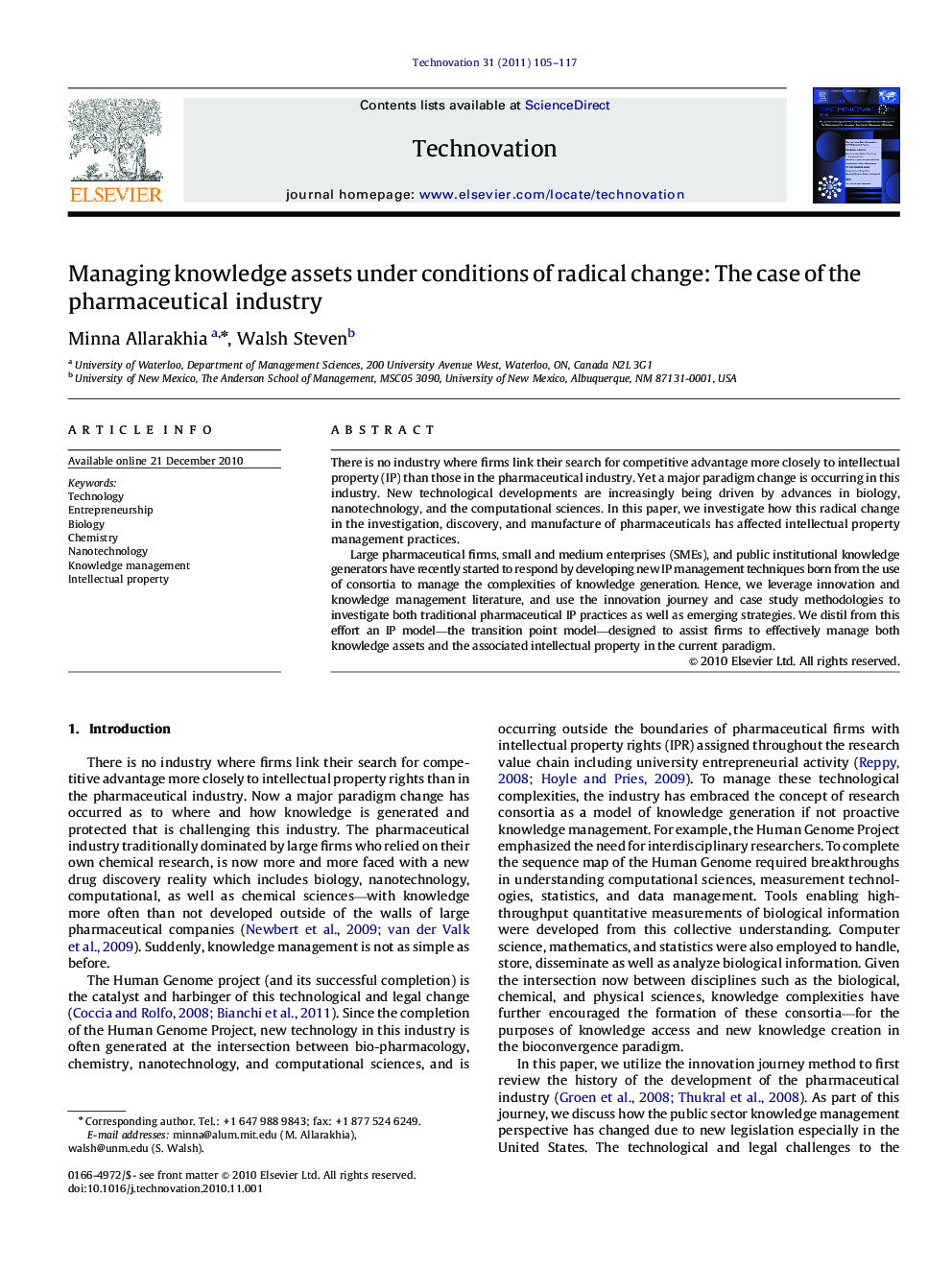| Article ID | Journal | Published Year | Pages | File Type |
|---|---|---|---|---|
| 1022359 | Technovation | 2011 | 13 Pages |
There is no industry where firms link their search for competitive advantage more closely to intellectual property (IP) than those in the pharmaceutical industry. Yet a major paradigm change is occurring in this industry. New technological developments are increasingly being driven by advances in biology, nanotechnology, and the computational sciences. In this paper, we investigate how this radical change in the investigation, discovery, and manufacture of pharmaceuticals has affected intellectual property management practices.Large pharmaceutical firms, small and medium enterprises (SMEs), and public institutional knowledge generators have recently started to respond by developing new IP management techniques born from the use of consortia to manage the complexities of knowledge generation. Hence, we leverage innovation and knowledge management literature, and use the innovation journey and case study methodologies to investigate both traditional pharmaceutical IP practices as well as emerging strategies. We distil from this effort an IP model—the transition point model—designed to assist firms to effectively manage both knowledge assets and the associated intellectual property in the current paradigm.
Research Highlights► New technological developments in the pharmaceutical industry are increasingly being driven by advances in biology, nanotechnology, and the computational sciences. ► Radical changes in the discovery and development of pharmaceuticals have affected intellectual property management practices. ► The Transition Point Model is designed to assist firms to manage their knowledge assets and intellectual property.
